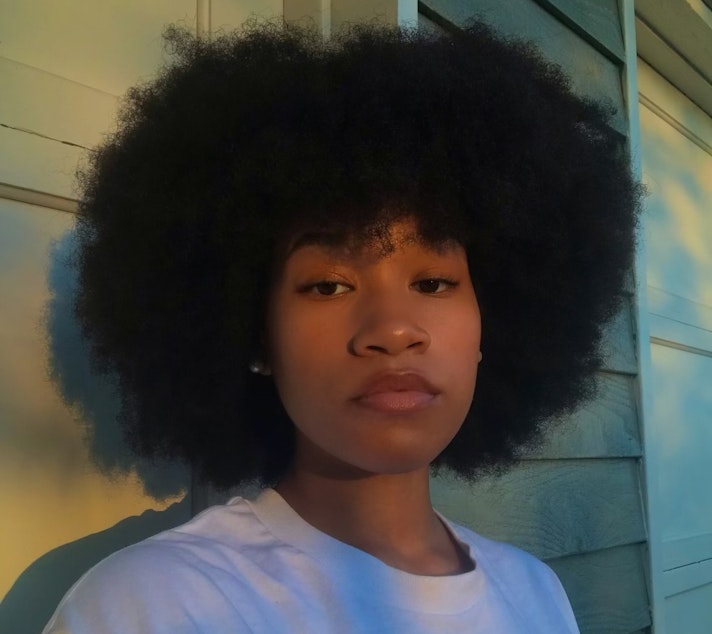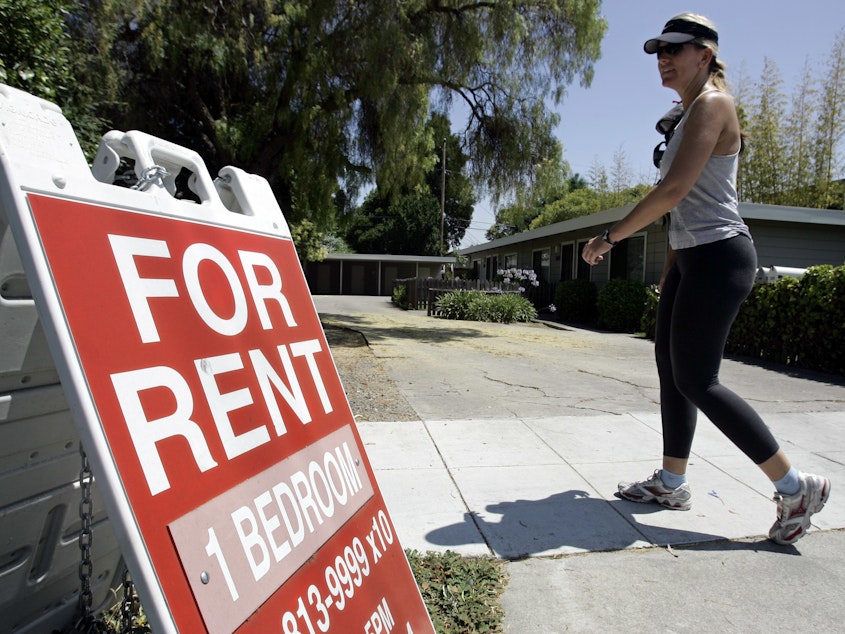To mask or not to mask, that is the question: Today So Far

- Local bookworms and librarians react to a national wave of book ban efforts.
- It's personal for Seattle's new liaison for gun violence prevention.
- We're about to phase into a new norm for masking.
This post originally appeared in KUOW's Today So Far newsletter for Feb. 14, 2022.
You may have heard about books being banned in Tennessee, or books being burned in Tennessee. But the issue is not confined to that state. There has been a national wave of book ban attempts over the past year. The American Library Association has noted a "dramatic uptick" in book challenges, when someone files a complaint in order to ban a book. Each report can contain multiple titles. Between September and December 2021, the ALA received 330 challenge reports. The number is expected to be higher when the full year is counted. To put that in perspective, the ALA documented 156 challenges in all of 2020. KUOW's Soundside has the story about how local bookworms and librarians are responding to the issue.
In Seattle, DeVitta Briscoe has made a move from a community advocate to the city's first-ever liaison for gun violence prevention. As KUOW's Amy Radil reports, DeVitta said the new gig isn't really one she wants to receive congratulations for.
“...I feel like – this is a job that no one should have, right? I have to work myself out of this job at some point.”
Devitta lost her son to gun violence in Tacoma in 2010. In 2016, Seattle police shot and killed her brother Che Taylor. She now enters her role at the city as Seattle is experiencing a dramatic rise in gunfire — 40% more shots fired from 2020 to 2021. Read the full story here.
Get ready for the next wave of mask confusion. At first, we were all told not to wear masks (I'm assuming because hospital PPE supplies were not up to pandemic par). Then we were told to put a mask on in public, and that message ping-ponged from how cloth masks were great and also not great. Then there was that moment when officials told us to put on a second mask, just in case. And lately, we've shifted into the gold standard of N95 masks.
Sponsored
Washington is now nixing its outdoor mask mandate. And we can expect Gov. Jay Inslee to announce very soon when the indoor mask mandate will go away. One epidemiologist with the University of Washington says it's about time to ease up on masking.
"Leaving it to the people right now would be the right thing to do because the infection rate in our community is very low," Dr. Ali Mokdad told Seattle Now. ".... It's not about what people are doing around you, it's more about the circulation of the virus in the community. So if you live in a community where the circulation of the virus is very low, you shouldn't be worried if somebody is wearing a mask or not because the chances of you getting infected from that person is very low."
King County still classifies the level of Covid cases as "high," but officials are expecting cases to plummet soon. While Dr. Mokdad says that masking can ease up currently, conditions will change and masks could return in the future. He likens it to the morning weather report — if it's cold out, put on a jacket; if the spread is high, put on a mask. It's part of a transition from pandemic to endemic, he says.
"We're expecting a surge sometime in summer, simply because of waning immunity from both vaccines and infection," Dr. Mokdad adds.
On a personal level, Dr. Mokdad plans to keep wearing his mask through next winter. Hear his full insights on Seattle Now.
Sponsored
Have a comment or want to reach out to me? Send me an email at dyer@kuow.org.
AS SEEN ON KUOW

Nikẹ Adejumobi's journey through hairstyles, and hair restoration, wasn't just about style, it was about self confidence. Her story is the latest RadioActive feature. (Nikẹ Adejumobi)
Sponsored
DID YOU KNOW?
Today is Valentine's Day, another holiday that is the result of hundreds of years of evolution. Its roots go back to the Catholic Saint Valentine, though there are actually three different saints with this name. Each legend has some relation to "love," though the romantic vibe of the holiday didn't truly come about until the middle ages. When it started in 496 AD, it's likely that it was placed over the Roman holiday of Lupercalia as a Christian substitute. Both holidays promote symbols of fertility, but take very different approaches.
For Lupercalia, Roman priests would have a ceremony at the cave where Romulus and Remus (founders of Rome) were raised by wolves. After sacrificing a goat for fertility and a good harvest, the priests would go through town and slap women (non-violently) with the sacrificial hide as it was believed to increase fertility. This was obviously before our modern age of science.
Here's another, unrelated factoid that is of no interest to anyone but me, but since I'm writing this Valentine's newsletter, it's happening — one of many reasons why my wife Nina is so awesome is her perseverance and positivity. We all have challenges in life, and Nina has had her share. But through it all, she maintains a glowing spirit that puts a lot of goodness into this world — helping at a hospital during a pandemic, taking care of her mom, and putting up with me (all while going back to school). There's a lyric from a Pedro the Lion song about wanting to be someone else for a "few habit-forming years." That reminds me of Nina who finds a way to balance habits of strength, positivity, generosity, and patience. That's character. Plus, she has excellent taste in horror movies.
ALSO ON OUR MINDS
Sponsored

It's not just home prices. Rents rise sharply across the U.S.
Rents are rising more than usual just about everywhere. The forces driving rents higher differ from city to city. A lot of technology workers have been moving to Austin and the migration of more people there is pushing up both rents and home prices. In New York City, rents are rebounding after falling earlier in the pandemic.

